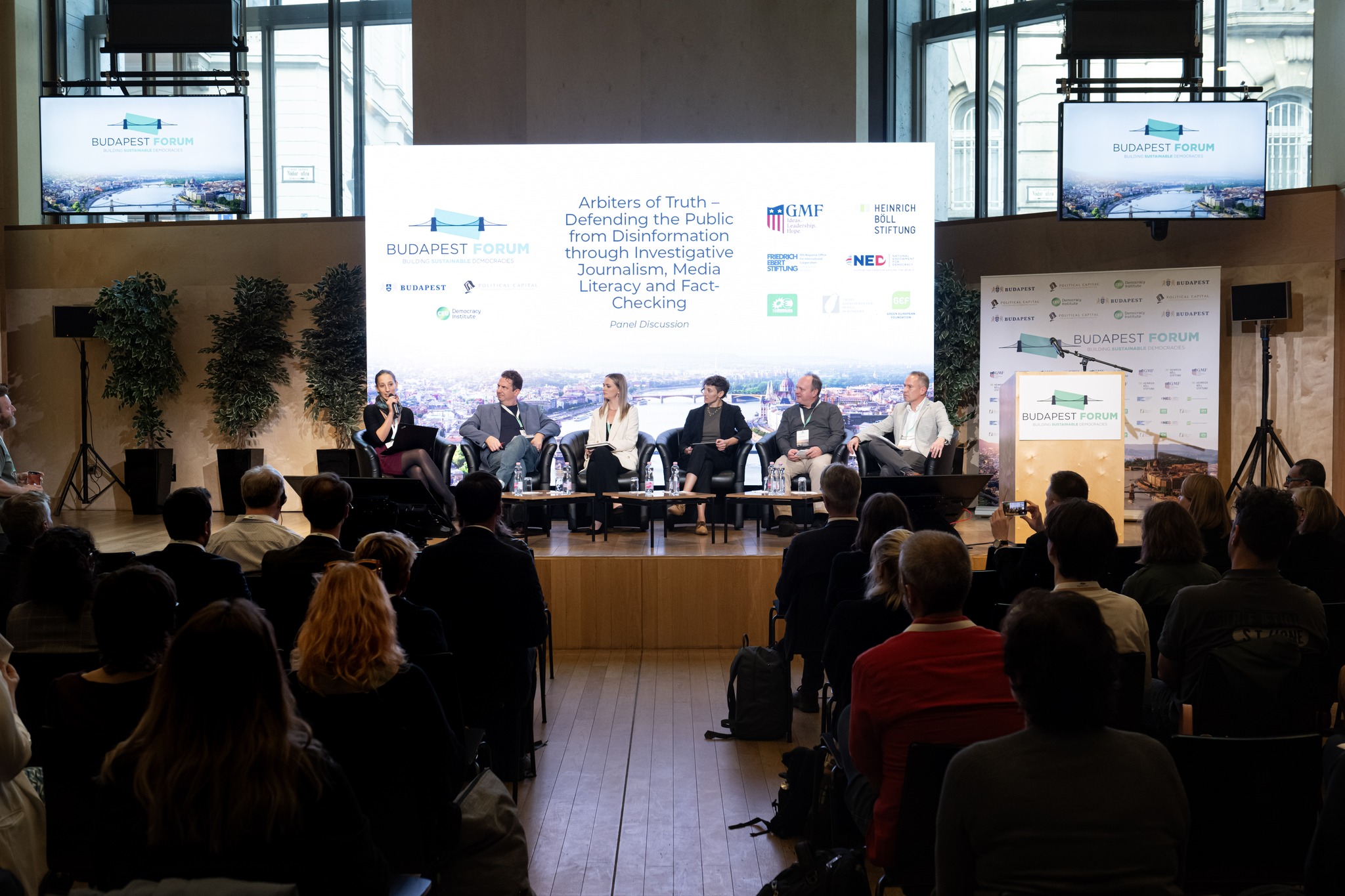Budapest Forum 2023 - Arbiters of Truth – Defending the Public from Disinformation through Investigative Journalism, Media Literacy and Fact-Checking
2023-10-19
Speakers
- Beth Goldberg, Head of Research, Jigsaw at Google
- Péter Krekó, Political Capital Institute; Senior Fellow, CEPA
- Balázs Vedres, Research Fellow, CEU Democracy Institute
- Joseph E. Uscinski, Professor, University of Miami
- Jordan Warlick, Policy Advisor, U.S. Commission on Security and Cooperation in Europe
Moderator: Blanka Zöldi, Editor-in-Chief, Lakmusz

Main takeaways
- Spreading disinformation is happening both ways: bottom-up and top-down. It means that it is no longer an issue only of the social media platforms (bottom-up). Nowadays presidents/state officials also spread disinformation (top-down).
- Hungary and the US has a lot in common when it comes to disinformation despite the differences.
- It is very hard to differentiate between true and false information because there is a lot of noise. That is why even Western media falls for disinformation in some cases.
- The trends nowadays are that 1) disinformation has moved from big platforms to fragmented groups; 2) micro influencers appeared as well – spreading disinformation. It is much harder now to fight both. This is what is happening right now in Hungary: Political Capital found over 500 fake profiles spreading government propaganda. It is a low cost model with high efficiency.
- On social media more and more bots appear and there is a smooth transition from bots talking to actual people to bots talking to each other. It is hard to catch them too.
- The traits that make someone more prone to believe in conspiracy theories are 1) isolation 2) alienation and 3) mistrust in the system and in institutions. And there is also a scale that measures one’s „conspiracy mentality”.
Policy recommendations
- What is the responsibility of big platforms? To remove, to reduce harmful disinformation and its visibility and to elevate the visibility of credited information and to help educate people how to navigate. Google also has a mitigation strategy, the so-called prebunking initiative: to warn someone before it is too late.
- How to fight disinformation? 1) To empower people with tools like media literacy. 2) With investigative journalism and fact-checking. 3) With civil society initiatives (such as NAFO).
Copyright 2025. Political Capital Policy Research and Consulting Institute, all rights reserved.

